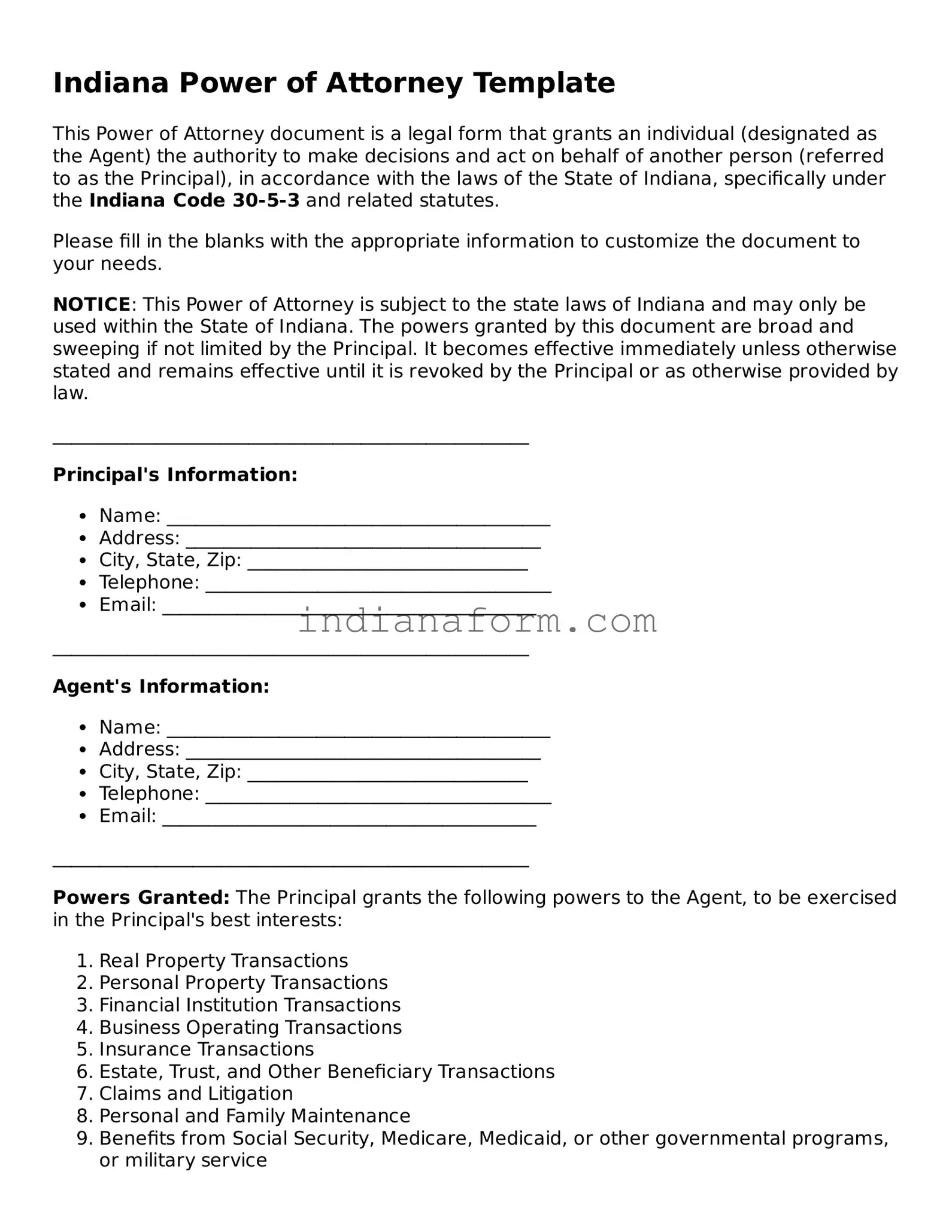Indiana Power of Attorney Template
This Power of Attorney document is a legal form that grants an individual (designated as the Agent) the authority to make decisions and act on behalf of another person (referred to as the Principal), in accordance with the laws of the State of Indiana, specifically under the Indiana Code 30-5-3 and related statutes.
Please fill in the blanks with the appropriate information to customize the document to your needs.
NOTICE: This Power of Attorney is subject to the state laws of Indiana and may only be used within the State of Indiana. The powers granted by this document are broad and sweeping if not limited by the Principal. It becomes effective immediately unless otherwise stated and remains effective until it is revoked by the Principal or as otherwise provided by law.
___________________________________________________
Principal's Information:
- Name: _________________________________________
- Address: ______________________________________
- City, State, Zip: ______________________________
- Telephone: _____________________________________
- Email: ________________________________________
___________________________________________________
Agent's Information:
- Name: _________________________________________
- Address: ______________________________________
- City, State, Zip: ______________________________
- Telephone: _____________________________________
- Email: ________________________________________
___________________________________________________
Powers Granted: The Principal grants the following powers to the Agent, to be exercised in the Principal's best interests:
- Real Property Transactions
- Personal Property Transactions
- Financial Institution Transactions
- Business Operating Transactions
- Insurance Transactions
- Estate, Trust, and Other Beneficiary Transactions
- Claims and Litigation
- Personal and Family Maintenance
- Benefits from Social Security, Medicare, Medicaid, or other governmental programs, or military service
- Tax Matters
- Employment of Agents
The Agent agrees to act in accordance with the laws of the State of Indiana and with the best interests, and for the benefit of the Principal, using all due care, competence, and diligence in all actions taken.
___________________________________________________
Duration: This Power of Attorney is effective immediately and shall remain in effect:
- Until a specific date of ________________________________ (if applicable).
- Until revoked by the Principal in writing.
- Upon the Principal's death.
- Upon the Principal's incapacitation, if not designated as durable.
___________________________________________________
Signature of Principal: ______________________________________
Date: ______________________________________
___________________________________________________
Signature of Agent: ________________________________________
Date: ______________________________________
___________________________________________________
Witness Declaration: This document was signed in my presence by the Principal, who appears to be of sound mind and under no duress, fraud, or undue influence.
Signature of Witness #1: ____________________________________
Printed Name: ____________________________________________
Date: ______________________________________
___________________________________________________
Signature of Witness #2: ____________________________________
Printed Name: ____________________________________________
Date: ______________________________________
___________________________________________________
This document should be reviewed by a legal professional before use to ensure compliance with current Indiana laws and its suitability for the intended use.

